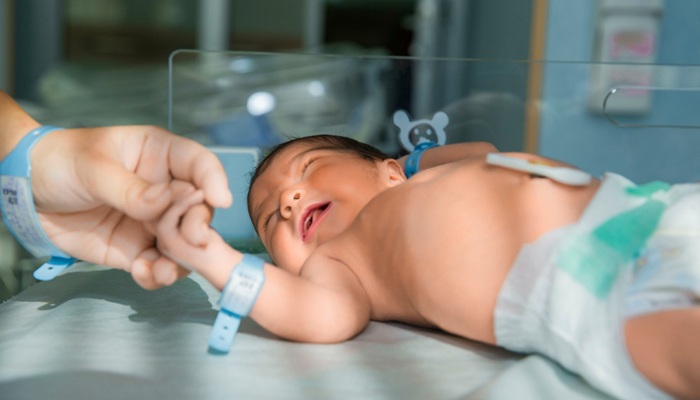Circumcision is a surgical procedure that involves removing the foreskin—the skin covering the head of the penis. Also known as khitan in Indonesian or circumcision in medical terms, this procedure is commonly performed on newborn baby boys. However, circumcision can also be done in adulthood, though it may come with more risks and a longer recovery period.
Contents
Purpose and Benefits of Circumcision
While circumcision is often done for religious or cultural reasons, it can also be medically recommended by doctors to treat certain conditions. Below are some key purposes and benefits of circumcision:
- Improved hygiene: Circumcision makes it easier to clean the penis.
- Reduced risk of urinary tract infections (UTIs): Circumcision may help lower the risk of developing UTIs.
- Lower risk of sexually transmitted infections (STIs): Circumcised men may have a reduced risk of contracting STIs, including HIV.
- Prevention of penile issues: Uncircumcised foreskin can sometimes be difficult or impossible to retract (a condition called phimosis), which can cause swelling and discomfort.
- Lower risk of penile cancer: Although rare, penile cancer is less common in circumcised men.
Circumcision Procedure
Before the Procedure
For newborns, the doctor will apply anesthesia to the penis—either as a cream or injection.
For older children or adults, a full health evaluation and physical examination will be conducted. Inform the doctor of any medications or supplements being taken, including over-the-counter drugs and herbal remedies.
Some substances like nonsteroidal anti-inflammatory drugs (NSAIDs) and blood thinners (anticoagulants) can increase the risk of bleeding. Be sure to inform your doctor about any allergies, including:
- Medication allergies
- Latex allergies
- Skin cleanser allergies (e.g., iodine or isopropyl alcohol)
During the Procedure
Circumcision for newborns is usually done in the hospital within the first few days after birth.
The baby is placed on their back with arms and legs gently secured. The penis and surrounding area are cleaned, and local anesthesia is applied.
A special clamp or plastic ring is used to remove the foreskin. The doctor then applies an ointment (such as an antibiotic or petroleum jelly) and loosely wraps the penis with gauze. The entire procedure typically takes 5–10 minutes.
After the Procedure
Recovery usually takes 7–10 days. Initially, the penis may be sore, discolored, swollen, or bruised. A yellow discharge from the tip of the penis is also normal.
If a newborn becomes fussy as the pain medication wears off, gently comfort and carry them while avoiding pressure on the penis.
Parents should clean the penis with warm water and baby-safe soap during healing. Gently pat dry. For newborns, change the dressing with each diaper change.
Doctors may recommend applying antibiotic ointment or petroleum jelly to prevent the dressing from sticking to the diaper. Change diapers frequently and keep them loose-fitting.
Possible Complications
Circumcision is generally safe, but in rare cases, complications may occur, such as:
- Anesthesia reactions
- Bleeding
- Infection
- Pain
- Removing too much or too little foreskin
- Irritation at the penis tip
- Narrowing of the urethral opening (meatal stenosis)
- Inflammation of the penis tip (meatitis)
Seek medical help immediately if you notice the following:
- Inability to urinate within 12 hours after the procedure
- Fever in a baby
- Excessive crying or signs of severe discomfort
- Persistent bleeding
- Worsening discoloration after 3–5 days
- Foul-smelling discharge from the penis
Recommended Pediatric Surgeons for Circumcision at Mandaya Royal Hospital Puri
1. dr. Flora Agustina, Sp.BA

dr. Flora is a pediatric surgeon skilled in performing circumcisions. She earned her general medical degree from Universitas Kristen Indonesia, Jakarta, and her pediatric surgery specialization from Universitas Padjadjaran, Bandung.
She has completed numerous medical training programs, including:
- Basic Surgical Skills Course (BSSC), Bali, 2012
- Basic Laparoscopic Surgery Course, Bali, 2015
- Definitive Surgery in Trauma and Acute Care Course, Bali, 2014
- Advanced Trauma Life Support (ATLS), Bandung, 2009
- Upper & Lower GI Endoscopy Workshop, Bali, 2015
- Symposium “Complications in Pediatric Surgery,” PERBANI 24th Annual Meeting, Bandung, 2016
Schedule:
- Monday: 17.00 – 19.00 WIB
- Wednesday: 17.00 – 19.00 WIB
- Thursday: 17.00 – 19.00 WIB
- Saturday: 14.00 – 16.00 WIB
2. dr. Erwin Suryanegara, Sp.B, MSI.Med

dr. Erwin is a general surgeon with education in Surgical Studies, Biomedical Science, and a medical degree from Universitas Diponegoro.
Besides circumcision, he also performs procedures for appendicitis, hernias, hemorrhoids, and skin tumors.
Schedule:
- Monday: 08.00 – 12.00 WIB
- Tuesday: 08.00 – 12.00 WIB
- Thursday: 08.00 – 12.00 WIB
To make your visit easier, use the Chat via WhatsApp, Book Appointment feature, or download the Care Dokter app from Google Play or App Store to access queue numbers and complete hospital information.



